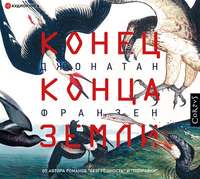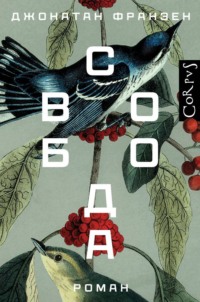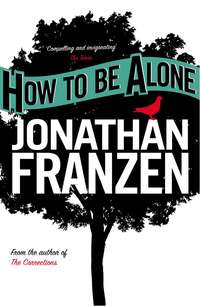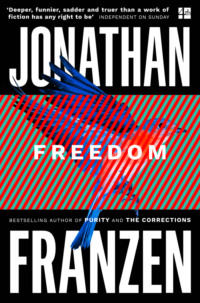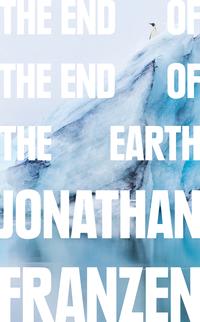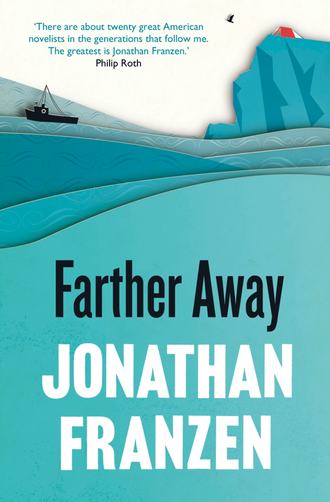
Полная версия
Farther Away
I also thought it might be good, while I was there, to reread the book generally considered to be the first English novel. Robinson Crusoe was the great early document of radical individualism, the story of an ordinary person’s practical and psychic survival in profound isolation. The novelistic enterprise associated with individualism—the search for meaning in realistic narrative—went on to become the culture’s dominant literary mode for the next three centuries. Crusoe’s voice can be heard in the voice of Jane Eyre, the Underground Man, the Invisible Man, and Sartre’s Roquentin. All these stories had once excited me, and there persisted, in the very word novel, with its promise of novelty, a memory of more youthful experiences so engrossing that I could sit quietly for hours and never think of boredom. Ian Watt, in his classic The Rise of the Novel, correlated the eighteenth-century burgeoning of novelistic production with the growing demand for at-home entertainment by women who’d been liberated from traditional household tasks and had too much time on their hands. In a very direct way, according to Watt, the English novel had risen from the ashes of boredom. And boredom was what I was suffering from. The more you pursue distractions, the less effective any particular distraction is, and so I’d had to up various dosages, until, before I knew it, I was checking my e-mail every ten minutes, and my plugs of tobacco were getting ever larger, and my two drinks a night had worsened to four, and I’d achieved such deep mastery of computer solitaire that my goal was no longer to win a game but to win two or more games in a row—a kind of meta-solitaire whose fascination consisted not in playing the cards but in surfing the streaks of wins and losses. My longest winning streak so far was eight.
I made arrangements to hitch a ride to Masafuera on a small boat chartered by some adventurous botanists. Then I indulged in a little orgy of consumerism at REI, where the Crusovian romance abides in the aisles of ultralightweight survival gear and, especially perhaps, in certain emblems of civilization-in-wilderness, like the stainless-steel martini glass with a detachable stem. Besides a new backpack, tent, and knife, I outfitted myself with certain late-model specialty items, such as a plastic plate with a silicone rim that flipped up to form a bowl, ascorbic-acid tablets to neutralize the taste of water sterilized with iodine, a microfiber towel that stowed in a marvelously small pouch, organic vegan freeze-dried chili, and an indestructible spork. I also assembled large stores of nuts, tuna, and protein bars, because I’d been told that if the weather turned bad I could be stranded on Masafuera indefinitely.
On the eve of my departure for Santiago, I visited my friend Karen, the widow of the writer David Foster Wallace. As I was getting ready to leave her house, she asked me, out of the blue, whether I might like to take along some of David’s cremation ashes and scatter them on Masafuera. I said I would, and she found an antique wooden matchbox, a tiny book with a sliding drawer, and put some ashes in it, saying that she liked the thought of part of David coming to rest on a remote and uninhabited island. It was only later, after I’d driven away from her house, that I realized that she’d given me the ashes as much for my sake as for hers or David’s. She knew, because I had told her, that my current state of flight from myself had begun soon after David’s death, two years earlier. At the time, I’d made a decision not to deal with the hideous suicide of someone I’d loved so much but instead to take refuge in anger and work. Now that the work was done, though, it was harder to ignore the circumstance that, arguably, in one interpretation of his suicide, David had died of boredom and in despair about his future novels. The desperate edge to my own recent boredom: might this be related to my having broken a promise to myself? The promise that, after I’d finished my book project, I would allow myself to feel more than fleeting grief and enduring anger at David’s death?
And so, on the last morning of January, I arrived in heavy fog at a spot on Masafuera called La Cuchara (The Spoon), three thousand feet above sea level. I had a notebook, binoculars, a paperback copy of Robinson Crusoe, the little book containing David’s remains, a backpack filled with camping gear, a grotesquely inadequate map of the island, and no alcohol, tobacco, or computer. Apart from the fact that, instead of hiking up on my own, I’d followed a young park ranger and a mule that was carrying my backpack, and that I’d also brought along, at various people’s insistence, a two-way radio, a ten-year-old GPS unit, a satellite phone, and several spare batteries, I was entirely isolated and alone.
My first experience of Robinson Crusoe was having it read to me by my father. Along with Les Misérables, it was the only novel that meant anything to him. From the pleasure he took in reading it to me, it’s clear that he identified as deeply with Crusoe as he did with Jean Valjean (which, in his self-taught way, he pronounced “Gene Val Gene”). Like Crusoe, my father felt isolated from other people, was resolutely moderate in his habits, believed in the superiority of Western civilization to the “savagery” of other cultures, saw the natural world as something to be subdued and exploited, and was an inveterate do-it-yourselfer. Self-disciplined survival on a desert island surrounded by cannibals was the perfect romance for him. He was born in a rough town built by his pioneer father and uncles, and he’d grown up working in road-building camps in the boreal swampland. In our basement in St. Louis, he kept an orderly workshop in which he sharpened his tools, repaired his clothes (he was a good seamster), and improvised, out of wood and metal and leather, sturdy solutions to home-maintenance problems. He took my friends and me camping several times a year, organizing our campsite by himself while I ran in the woods with my friends, and making himself a bed out of rough old blankets beside our fiberfill sleeping bags. I think, to some extent, I was an excuse for him to go camping.
My brother Tom, no less a do-it-yourselfer than my father, became a serious backpacker after he went away to college. Because I was trying to emulate Tom in all things, I listened to his stories of ten-day solo treks in Colorado and Wyoming and yearned to be a backpacker myself. My first opportunity came in the summer I turned sixteen, when I persuaded my parents to let me take a summer-school course called “Camping in the West.” My friend Weidman and I joined a busload of teenagers and counselors for two weeks of “study” in the Rockies. I had Tom’s obsolescent red Gerry backpack and (for taking notes on my somewhat randomly chosen area of study, lichens) a notebook identical to the one that Tom carried.
On the second day of a trek into the Sawtooth Wilderness, in Idaho, we were all invited to spend twenty-four hours by ourselves. My counselor took me off to a sparse grove of ponderosa pine and left me alone there, and very soon, although the day was bright and unthreatening, I was cowering in my tent. Apparently, all it took for me to become aware of the emptiness of life and the horror of existence was to be deprived of human company for a few hours. I learned, the next day, that Weidman, though eight months older than me, had been so lonely that he hiked back to within sight of the base camp. What enabled me to stick it out—and to feel, moreover, that I could have stayed alone for longer than a day—was writing:
THURSDAY JULY 3
This evening I begin a notebook. If anyone reads this, I trust they will forgive my overuse of “I.” I can’t stop it. I’m writing this.
As I came back to my fire after dinner this afternoon there was a moment when I felt my aluminum cup a friend, sitting on a rock, considering me… .
I had a certain fly (at least I think it was the same one) buzz around my head for a goodly long while this afternoon. After a time I stopped thinking of it as an annoying, nasty insect & subconsciously came to think it an enemy that I was really quite fond of and that we were just playing with each other.
Also this afternoon (this was my main activity) I sat out on a point of rock trying to set to words of a sonnet the different purposes of my life that I saw at different times (3—as in points of view). Of course I now see that I can’t even do this in prose form so it was really futile. However, as I did this, I became convinced that life was a waste of time, or something like that. I was so sad and screwed up at the time that every thought was of despair. But then I looked at some lichens & wrote a bit about them & calmed down and figured out that my sorrow was due not to a loss of purpose but to the fact that I didn’t know who I was or why I was and that I didn’t show my love to my parents. I was coming close with my third point, but my next thought was a little off. I figured that the reason for the above was that time (life) is too short. This is, of course, true, but my sorrow wasn’t caused by this. All of a sudden it hit me: I missed my family.
Once I’d diagnosed my homesickness, I was able to address it by writing letters. For the rest of the trip, I wrote in my journal every day and found myself moving away from Weidman and gravitating toward my female fellow-campers; I’d never been so successful socially. What had been missing was some halfway secure sense of my own identity, a sense achieved in solitude by putting first-person words on a page.
I was keen, for years afterward, to do more backpacking, but never quite keen enough to make it happen. The self I was discovering through writing turned out not to be identical to Tom’s after all. I did hold on to his old Gerry backpack, although it was not a useful general-purpose piece of luggage, and I kept alive my dreams of wilderness by buying cheap nonessential camping gear, such as a jumbo bottle of Dr. Bronner’s peppermint soap, which Tom periodically praised the virtues of. When I took a bus back to college for my senior year, I put the Dr. Bronner’s in the backpack, and the bottle burst in transit, soaking my clothes and books. When I tried to rinse out the backpack in a dormitory shower, its fabric disintegrated in my hands.
Masafuera, as the boat approached it, was not inviting. My only map of the island was a letter-size printout of a Google Earth image, and I saw right away that I’d optimistically misinterpreted the contour lines on it. What had looked like steep hills were cliffs, and what had looked like gentle slopes were steep hills. A dozen or so lobsterman shacks were huddled at the bottom of a tremendous gorge, to either side of which the island’s green shoulders rose thirty-five hundred feet into a cap of broodingly churning cloud. The ocean, which had seemed reasonably calm on the trip out, was beating in big swells against a gap in the rocks below the shacks. To get ashore, the botanists and I jumped down into a lobster boat, which motored to within a hundred yards of shore. There the boatmen hauled up the motor, and we took hold of a rope stretching out to a buoy and pulled ourselves farther in. As we neared the rocks, the boat lurched chaotically from side to side, water flooding into the stern, while the boatmen struggled to attach us to a cable that would drag us in. Onshore were breathtaking quantities of flies—the place’s nickname is Fly Island. Competing boom boxes pumped North and South American music through the open doors of several shacks, pushing back against the oppressive immensity of the gorge and the coldly heaving sea. Adding to the stricken atmospherics was a grove of large, dead trees, aged to the color of bone, behind the shacks.
My companions for the trek to the interior were the young park ranger, Danilo, and a poker-faced mule. Considering the steepness of the island, I couldn’t even pretend to be disappointed not to carry my own pack. Danilo had a rifle strapped across his back, in the hope of killing one of the nonnative goats that had survived a Dutch environmental foundation’s recent effort to eradicate them. Under gray morning clouds that soon turned to fog, we hiked up interminable switchbacks and through a ravine lush with maqui, an introduced plant species that is used to repair lobster traps. There were discouraging quantities of old mule droppings on the trail, but the only moving things we saw were birds: a little gray-flanked cinclodes and several Juan Fernández hawks, two of Masafuera’s five terrestrial bird species. The island is also the only known breeding site for two interesting petrels and one of the world’s rarest songbirds, the Masafuera rayadito, which I was hoping to see. In fact, by the time I’d left for Chile, seeing new bird species was the only activity that I could absolutely count on not to bore me. The rayadito’s population, most of which lives in a small high-altitude area on the island called Los Inocentes, is now thought to number as few as five hundred. Very few people have ever seen one.
Sooner than I’d expected, Danilo and I arrived at La Cuchara and saw, in the fog, the outlines of a small refugio, or ranger’s hut. We’d climbed to three thousand feet in just over two hours. I’d heard that there was a refugio at La Cuchara, but I’d imagined a primitive shack and hadn’t foreseen what a problem it would pose for me. Its roof was steep and tethered to the ground by cables, and inside it were a propane stove, two bunk beds with foam mattresses, an unappetizing but serviceable sleeping bag, and a cabinet stocked with dry pasta and canned foods; apparently, I could have brought along nothing but some iodine tablets and still survived here. The refugio’s presence made my already somewhat artificial project of solitary self-sufficiency seem even more artificial, and I resolved to pretend that it didn’t exist.
Danilo took my pack off the mule and led me down a foggy path to a stream with enough water trickling in it to form a little pool. I asked him if it was possible to walk from here to Los Inocentes. He gestured uphill and said, “Yes, it’s three hours, along the cordones.” I thought of asking if we could go there right now, so that I could camp nearer to the rayaditos, but Danilo seemed eager to get back to the coast. He departed with the mule and his gun, and I bent myself to my Crusovian tasks.
The first of these was to gather and purify some drinking water. Carrying a filtration pump and a canvas waterskin, I followed what I thought was the path to the pool, which I knew wasn’t more than two hundred feet from the refugio, and I immediately got lost in the fog. When I finally located the pool, after trying several paths, the tube on my pump cracked. I’d bought the pump twenty years earlier, thinking it would come in handy if I was ever alone in the wilderness, and its plastic had since gone brittle. I filled up the skin with somewhat turbid water and, despite my resolution, entered the refugio and poured the water into a large cooking pot, along with some iodine tablets. This simple task had somehow taken me an hour.
Since I was in the refugio anyway, I changed out of my clothes, which had been soaked by the climb through dew and fog, and tried to dry the inside of my boots with the surfeit of toilet paper I’d brought. I discovered that the GPS unit, the one gadget that I didn’t have spare batteries for, had been switched on and draining power all day, which triggered an anxiety that I assuaged by wiping all the mud and water off the refugio’s floor with further wads of toilet paper. Finally, I ventured out onto a rocky promontory and scouted for a campsite beyond the refugio’s penumbra of mule droppings. A hawk dived right over my head; a cinclodes called pertly from a boulder. After much walking and weighing of pros and cons, I settled on a hollow that afforded some protection from the wind and no view of the refugio, and there I picnicked on cheese and salami.
I’d been alone for four hours. I put up my tent, lashing the frame to boulders and weighing down the stakes with the heaviest rocks I could carry, and made some coffee on my little butane stove. Returning to the refugio, I worked on my footwear-drying project, pausing every few minutes to open windows and shoo out the flies that kept finding their way inside. I seemed to be no more able to wean myself from the refugio’s conveniences than from the modern distractions that I was supposedly here to flee. I fetched another skin of water and used the big pot and the propane stove to heat some bathwater, and it was simply much more pleasant, after my bath, to go back inside and dry off with the microfiber towel and get dressed than to do this in the dirt and the fog. Since I was already so compromised, I went ahead and carried one of the foam mattresses down the promontory and put it in my tent. “But that’s it,” I said to myself, aloud. “That’s the end of it.”
Except for the hum of flies and the occasional call of a cinclodes, the silence at my campsite was absolute. Sometimes the fog lifted a little and I could see rocky hillsides and wet, fern-filled valleys before the ceiling lowered again. I took out my notebook and jotted down what I’d done in the past seven hours: got water, had lunch, put up tent, took bath. But when I thought about writing confessionally, in an “I” voice, I found that I was too self-conscious. Apparently, in the past thirty-five years, I’d become so accustomed to narrativizing myself, to experiencing my life as a story, that I could now use journals only for problem solving and self-investigation. Even at fifteen, in Idaho, I hadn’t written from within my despair but only after I was safely over it, and now, all the more so, the stories that mattered to me were the ones told—selected, clarified—in retrospect.
My plan for the next day was to try to see a rayadito. Simply knowing that the bird was on the island made the island interesting to me. When I go looking for new bird species, I’m searching for a mostly lost authenticity, for the remnants of a world now largely overrun by human beings but still beautifully indifferent to us; to glimpse a rare bird somehow persisting in its life of breeding and feeding is an enduringly transcendent delight. The next morning, I decided, I would get up at dawn and devote, if necessary, the entire day to finding my way to Los Inocentes and getting back. Cheered by the prospect of this not unchallenging quest, I made myself a bowl of chili, and then, although the daylight hadn’t faded yet, I zipped myself inside my tent. On the very comfortable mattress, in a sleeping bag I’d owned since high school, and with a headlamp on my forehead, I settled down to read Robinson Crusoe. For the first time all day, I felt happy.
One of Robinson Crusoe’s biggest early fans was Jean-Jacques Rousseau, who, in Émile, proposed that it be the primary text for the education of children. Rousseau, in the fine tradition of French bowdlerization, didn’t have in mind the entire text, just the long central section, in which Robinson relates his survival for a quarter century on a desert island. Few readers would dispute that this is the novel’s most compelling section, next to which the adventures of Robinson before and after (being enslaved by a Turkish pirate, fending off the attacks of giant wolves) seem lusterless and rote. Part of the survival story’s appeal is the specificity of Robinson’s recounting of it: the “three … hats, one cap, and two shoes that were not fellows” that are all that remain of his drowned shipmates, the catalogue of useful gear that he salvages from the wrecked ship, the intricacies of stalking the feral goats that populate the island, the nuts and bolts of reinventing the homely arts of making furniture, boats, pottery, and bread. But what really animates these adventureless adventures, and makes them surprisingly suspenseful, is their accessibility to the imagination of the ordinary reader. I have no idea what I would do if I were enslaved by a Turk or menaced by wolves; I might very well be too scared to do what Robinson does. But to read about his practical solutions to the problems of hunger and exposure and illness and solitude is to be invited into the narrative, to imagine what I would do if I were similarly stranded, and to measure my own stamina and resourcefulness and industry against his. (I’m sure my father was doing this, too.) Until the larger world impinges on the island’s isolation, in the form of marauding cannibals, there’s just the two of us, Robinson and his reader, and it’s very cozy. In a more action-packed narrative, the pages detailing Robinson’s everyday tasks and emotions would be what the critic Franco Moretti wryly calls “filler.” But, as Moretti notes, the dramatic expansion of this kind of “filler” was precisely Defoe’s great innovation; such stories of the quotidian became a fixture of realist fiction, in Austen and Flaubert as in Updike and Carver.
Framing and to some extent interpenetrating Defoe’s “filler” are elements of the other major forms of prose narrative that preceded it: ancient Hellenistic novels, which included tales of shipwrecks and enslavement; Catholic and Protestant spiritual autobiographies; medieval and Renaissance romances; and Spanish picaresques. Defoe’s novel follows also in the tradition of narratives libelously based, or purporting to be based, on the lives of actual public personages; in Crusoe’s case, the model was Alexander Selkirk. It has even been argued that Defoe intended the novel as a piece of utopianist propaganda, extolling the religious freedoms and economic opportunities of England’s New World colonies. The heterogeny of Robinson Crusoe illuminates the difficulty, maybe even the absurdity, of talking about the “rise of the novel” and of identifying Defoe’s work as the first individual of the species. Don Quixote, after all, was published more than a century earlier and is clearly a novel. And why not call the romances novels, too, since they were widely published and read in the seventeenth century and since, indeed, most European languages make no distinction between romance and novel? Early English novelists did often specifically stress that their own work was not “mere romance”; but, then, so had many of the romance writers themselves. And yet, by the early nineteenth century, when leading specimens of the form were first collected in authoritative sets by Walter Scott and others, the English not only had a very clear idea of what they meant by “novels” but were exporting large numbers of them, in translation, to other countries. A genre now definitely existed where none had before. So what exactly is a novel, and why did the genre appear when it did?
The most persuasive account remains the political-economic one that Ian Watt advanced fifty years ago. The birthplace of the novel, in its modern form, happens also to have been Europe’s most economically dominant and sophisticated nation, and Watt’s analysis of this coincidence is blunt but powerful, tying together the glorification of the enterprising individual, the expansion of a literate bourgeoisie eager to read about itself, the rise in social mobility (inviting writers to exploit its anxieties), the specialization of labor (creating a society of interesting differences), the disintegration of the old social order into a collection of individual isolates, and, of course, among the newly comfortable middle class, the dramatic increase in leisure for reading. At the same time, England was rapidly becoming more secular. Protestant theology had laid the foundations of the new economy by reimagining the social order as a collection of self-reliant individuals with a direct relationship with God; but by 1700, as the British economy thrived, it was becoming less clear that individuals needed God at all. It’s true that, as any impatient child reader can tell you, many pages of Robinson Crusoe are devoted to its hero’s spiritual journey. Robinson finds God on the island, and he turns to Him repeatedly in moments of crisis, praying for deliverance and ecstatically thanking Him for providing the means of it. And yet, as soon as each crisis has passed, he reverts to his practical self and forgets about God; by the end of the book, he seems to have been saved more by his own industry and ingenuity than by Providence. To read the story of Robinson’s vacillations and forgetfulness is to see the genre of spiritual autobiography unraveling into realist fiction.
The most interesting aspect of the novel’s origin may be the evolution of English culture’s answers to the question of verisimilitude: Should a strange story be accepted as true because it is strange, or should its strangeness be taken as proof that it is false? The anxieties of this question are still with us (witness the scandal of James Frey’s “memoir”), and they were certainly in play in 1719, when Defoe published the first and best-known volume of Robinson Crusoe. The author’s real name appeared nowhere in it. The book was identified, instead, as The Life and Strange Surprizing Adventures of Robinson Crusoe … Written by Himself, and many of its first readers took the story to be nonfiction. Enough other readers doubted its authenticity, however, that Defoe felt obliged to defend its truthfulness when he published the third and last of the volumes, the following year. Contrasting his story with romances, in which “the story is feign’d,” he insisted that his story, “though allegorical, is also historical,” and he affirmed that “there is a man alive, and well known too, the actions of whose life are the just subject of these volumes.” Given what we know of Defoe’s real life—like Crusoe, he got into trouble by pursuing risky business schemes, such as raising civet cats for perfume, and he had intimate knowledge of isolation from the debtors’ prison in which bankruptcy twice landed him—and given also his assertion, elsewhere in the volume, that “life in general is, or ought to be, but one universal act of solitude,” it seems fair to conclude that the “well known” man is Defoe himself. (There is, strikingly, that “oe” at the end of both names.) We now understand a novel to be a mapping of a writer’s experience onto a waking dream, and a crucial turn toward this understanding can be seen in Defoe’s tentative assertion of a less than strictly historical kind of truth—the novelist’s “truth.”


